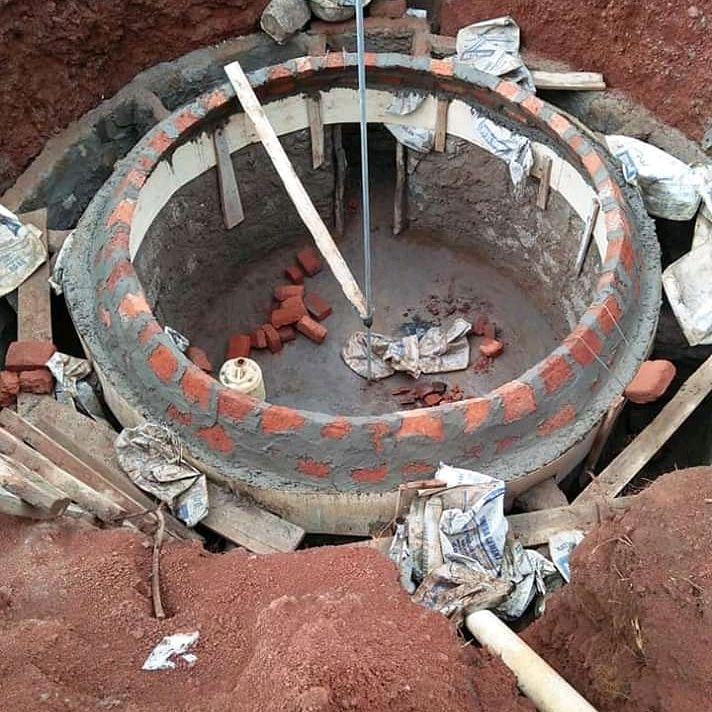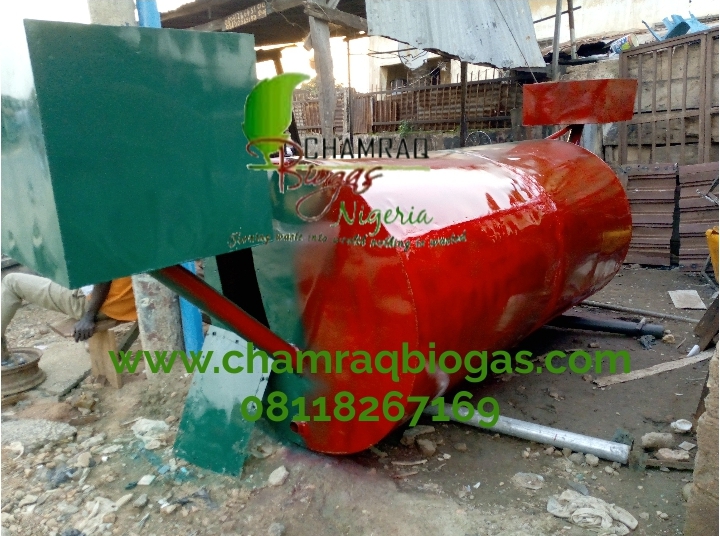



Generating power from pig manure in West Africa
With pig herds of over 300 animals becoming more common in West Africa, this has sparked public concern over proper waste disposal. This issue, interestingly, also offers valuable opportunities.Thanks to West Africa’s increasingly urbanised population, pork consumption is fast increasing, with pork joints and take-away businesses offering all manner of delicacies. Today, there are also many young graduates in pig farming, with better access to capital, who are well-informed about what the business entails. George Kumi, a young graduate with a 350-pig population at Adeiso, has his target market well in his sights.
“In Ghana, we import very large volumes of pork products which are mainly sold in the big supermarkets,” explains Kumi.
“They may be of good quality and packaging but they are not fresh.
“I put a lot of work into turning out good-quality products at competitive prices.
“I need to expand soon to deal with the demand.
“And Ollabode Martins, a Nigerian farmer based in Lome, Togo, sells his products to restaurants.
“These days, pig farmers produce on a larger scale, and we have better skills, so we sell better products at cheaper prices.”
This said, larger-scale production has presented numerous challenges, especially those relating to waste disposal. Small-scale businesses do not attract much attention from environmental authorities but business operations with environmental issues are required to follow the same environmental safety standards.
As pig farms grow bigger, they can expect the same attention from local authorities and environmental inspectors that mining, chemical and other industries have attracted. Yemi Adesina, a prominent pig farmer and training consultant, says that pigs produce a substantial amount of waste which must be managed effectively.
“A modest population of 150 pigs generates 500 kg of poo a day. By using a biodigester, it can produce a minimum of 25 and a maximum of 32 cubic metres of gas for use in a generator.
“With larger populations the amounts grow bigger.
“Apart from regulatory authorities, pig farms which do not manage their waste effectively will certainly not be neighbour friendly.”

© Efua Okai
Interestingly, the pig manure challenge is offering pig farmers the opportunity to solve a major problem: the availability and cost of power. Whilst most Ghanaian industries complain about the high cost of power, in Nigeria many urban residents use generators because power is unreliable. The transformation of pig manure into electricity through the use of biodigesters has become an attractive prospect, and many farmers are turning to it.
Max Hammond, CEO of Tilly’s Farm and Vice President of the Pig Farmers Association, says that the conversion of pig manure into electricity could make a lot of difference to many farmers.
“Converting waste from the farms into energy sources isn’t only good for the environment but a smart and cost-effective way of generating power.
“Electricity in Ghana is not cheap, so the prospect of turning our waste into electrical power is a must-do.
“The initial investment isn’t cheap but when you consider it for the long term it makes much more economic sense.
“Our plan is to install a bio digester to enable us convert our waste to power for our heating requirements and eventually to generate all our electrical needs from biogas.”
The CEO of Chamraq Biogas Nigeria Mr Mohammed Chapa says that the conversion of pig waste into electricity is both safe and profitable.
“We are witnessing an increase in pig populations due to increasing demand for pork products. By converting their waste into electricity, farmers are avoiding the costs that other disposal methods would have entailed.
“Conversion of waste into electricity is more than a bonus, because electricity is a scarce commodity in Nigeria. The biodigester is easy to manage, and the cost is reasonable, especially when you look at the long-term benefits.
“In the last few years quite a number of farmers have installed our biodigester.”

© Chamraq
With pig farming on the rise in West Africa, the risk of putrid waste lagoons dotted around pig farms would have caused a lot of concern. Fortunately, farmers are able to deal with this major threat, making major savings on electricity expenditure in the process. Yemi Adesina believes that pig manure could, in the near future, become a major contributor to power generation in West Africa.
“Since they [pig farms] are not very far from highly poulated areas, it is possible for farms with larger pig populations to provide electricity to nearby communities. Many of them will generate power beyond their requirements, and make this available to nearby residents.”
There is yet another bonus from the use of biodigesters to produce electricity. Panyin Sackey, an agriculture consultant, says that the slurry left over in the biodigester is an excellent fertiliser.
“Some farmers have tried to use pig manure as fertiliser, with disastrous consequences. But by using the biodigester to produce electricity, they also get a byproduct which is rich in nutrients, and can be used in vegetable or crop production. Apart from its very high nutrition content, this fertiliser does not have the chemical contents of commercial fertilisers which cause damange to the soil. Indeed, this by-product can either provide another source of good revenue, or be used to grow crops on farm.”


